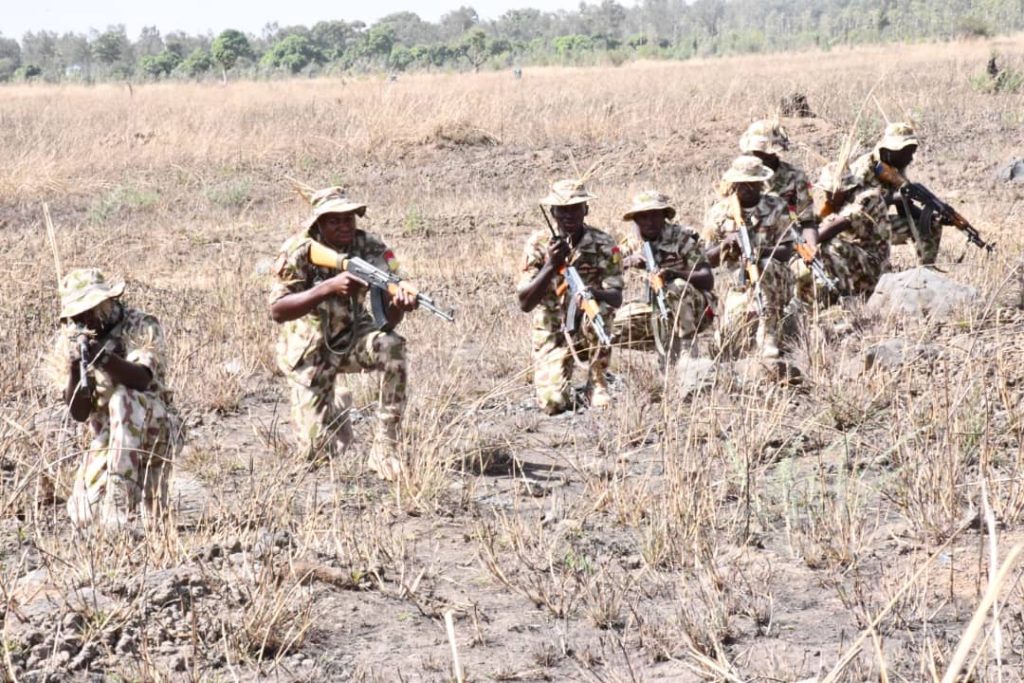
Samuel Omang
The Nigerian military has intensified ground and air operations across several northern states following a forceful warning from United States President Donald Trump, who threatened possible American military intervention and the suspension of U.S. aid over alleged killings of Christians in Nigeria.
Trump’s comments, delivered on his Truth Social platform, heightened international attention on Nigeria’s security landscape and provoked a swift response on the ground. In the days that followed, the Nigerian military expanded its operational reach across insurgency-prone territories, seeking to dismantle terrorist strongholds and block the logistics routes that sustain extremist networks.
In Borno State, a violent confrontation erupted between Boko Haram and the Islamic State West Africa Province in the Abadam axis. According to local accounts, Boko Haram fighters ambushed ISWAP operatives attempting to reclaim territory around Toumbun Gini, an island community near the Lake Chad Basin. More than 50 ISWAP fighters were reportedly killed, and several of their boats were seized in the ambush.
The clash underscored the deepening rivalry between the two factions at a time when the Nigerian military is tightening its operations across the region.
Earlier on the same day, troops of the 135 Special Forces Battalion under Operation Hadin Kai thwarted an attempted Boko Haram ambush along the Buratai–Kamuya Road. The Nigerian military reported that its forces rescued 86 civilians who were targeted for abduction and arrested 29 suspected logistics suppliers.
Trump’s Guns-ablazing Threat: How Nigerian Military Can Leverage Technology to End Insecurity
Further pursuit led soldiers to discover and destroy makeshift structures used as a terrorist camp, along with weapons, vehicles, motorcycles, tricycles and food supplies.
The Nigerian Air Force simultaneously escalated its precision air campaigns. Air interdictions were carried out in Borno, Kwara and Katsina states, destroying weapons depots, logistics hubs and suspected terrorist hideouts. Surveillance operations expanded through Zamfara, Kebbi and Kaduna, allowing air assets to track and neutralise fleeing fighters moving along well-known insurgent corridors.
Air Force officials noted that the missions were guided by real-time intelligence, including reconnaissance imagery that enabled targeted strikes while limiting civilian risk. The intensified aerial operations followed directives from the Chief of Air Staff to maintain pressure on terror cells and restrict their operational freedom.
The Nigerian military’s expanded operations came amid increased diplomatic sensitivity following Trump’s remarks. Nigerian officials maintained that the security crisis is driven by violent extremism rather than religious persecution, insisting that sovereignty must remain central even as international partners express concern. The government’s position has placed the Nigerian military at the heart of both the operational and diplomatic response.
For now, the Nigerian military appears focused on consolidating recent gains by degrading insurgent capabilities, disrupting supply lines and preventing renewed attacks across vulnerable northern communities.
Security analysts say sustained pressure from coordinated ground and air operations will be critical in shaping the next phase of the country’s counterinsurgency efforts.
